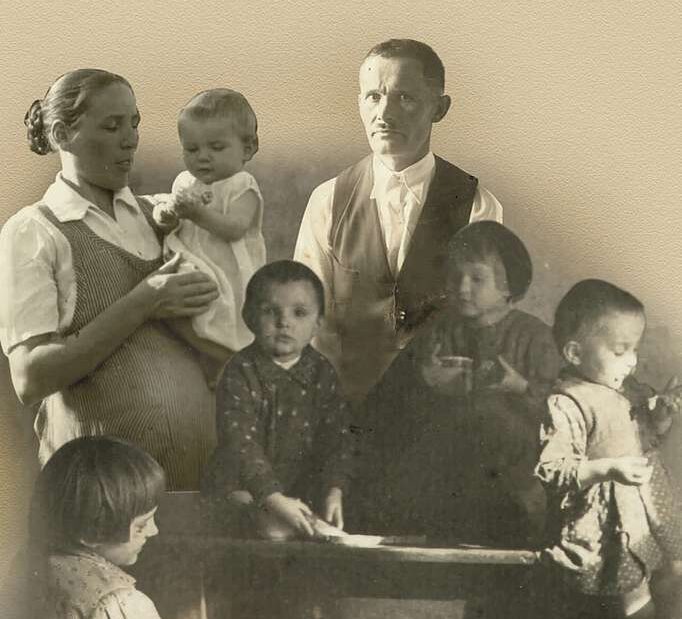“Poof!” he said. “Your sins are all gone now.” I sat in stunned silence. The “poof” came with a magician’s hand gesture, which made it even more unexpected. In the tiny confessional, face-to-face with Father D., I had just confessed my sins and was “poofed.” Don’t worry. The “poof” wasn’t intended to be anything official. Father did pray the words of absolution first.
“God the Father of mercies, through the death and resurrection of his Son, has reconciled the world to himself and sent the Holy Spirit among us for the forgiveness of sins; through the ministry of the Church may God give you pardon and peace, and I absolve you from your sins in the name of the Father, and of the Son and of the Holy Spirit. Amen.”
I think it was Father’s custom to say, “Poof, it’s all gone,” to remind the penitent of one of the effects of the sacrament: peace and serenity of conscience and spiritual consolation (CCC 1496). At that moment, we really are forgiven, our sins are absolved, and we are as clean as the day of our baptism. And this consolation – in fact, the entire experience of Reconciliation – is what makes it my favorite sacrament (no offense to Matrimony!).
Are you serious? Confession? Most Catholics avoid it or at least dread it. And I understand the reasons why. It can be uncomfortable. Do I really have to confess that? Or the flip side: what if I forget something, does it still “take?” Do I go face-to-face or behind the screen? And then there’s the whole matter of penance, which can make any of us squirmy.
But, many Catholics are, perhaps silently, yearning for it.
Recently, a parish we work with learned that while their parishioners rarely go to confession, it is one thing a large percentage of them said they want to start doing more often as a way to grow in faith as disciples. We think many parishes would see the same stats.
If Catholics in the pew are craving the peace, healing, and forgiveness that comes from confession, why aren’t they seeking it out more often? There could be many answers to this question. They may have had a negative experience in the past (real or perceived) that keeps them from returning. They may be listening to Protestant friends or family members who don’t believe in the sacrament, saying we don’t need to confess our sins to a priest. Others may deal with issues like anxiety or depression, which can keep them away.
So, what can we do to help encourage people to return to the sacrament? I’d like to offer some strategies for reigniting participation in the confession.
DO
Talk About It
I think the media and movies have made confession seem shameful or spooky, or worse, it is presented in ways that are just not accurate. So, if it’s been a long time since someone has gone, these portrayals could cloud their thinking. Talking and preaching about it can help normalize and demystify the sacrament. Enlist parishioners in a variety of age groups to share just a sentence or two about what they love about the sacrament and share the stories online, in the bulletin, or in your app (with permission, of course).
Provide parishioners with the steps of confession
(You can copy and paste the steps outlined below and customize them to your parish needs.) Some people may be nervous simply because they don’t remember exactly how it goes. It might be helpful to remind people that the priest is willing and happy to help walk them through it so they don’t feel pressure to remember it all. Another idea is for the parish priest to make a short video for your website and social media, inviting people to come to confession and outlining the simple steps.
Make an examination of conscience available everywhere
Put it on your website, in your app, as a free download that parishioners can get on their phone, and provide printed versions or pamphlets (outside the confessional so they can be snagged coming or going). There are several versions on the USCCB website (some also in Spanish). This can also be a barrier if someone hasn’t been to confession in a while. Helping them prepare for the sacrament in a way that is useful for their age and stage of life can help knock down that barrier.
Encourage families to come to confession together
Not only is this another way to normalize the sacrament, but it can help create a parish culture of forgiving and seeking forgiveness. You could have a special day and time, perhaps monthly, especially for families.
Supply confession times at neighboring parishes
This might be an unpopular idea, but hear me out. Most Catholics I have met prefer to go to another parish for confession. Even though we have heard of “divine amnesia,” which means priests can’t recall the confessions they hear afterward, it may still be awkward to go to confession with a priest we know well. Giving parishioners options may empower them to go for it. (Of course, promote your own parish confession times as well!)
DON’T
Don’t neglect ongoing formation
When adults and children understand what the Church teaches about the Sacrament of Reconciliation and why, it can reduce their hesitance to participate. A refresher course on the sacrament can be useful. There are many wonderful resources and guides for Catholics that are accessible and help break down barriers.
Don’t forget to emphasize the healing aspect of the sacrament
The sacrament was instituted by Christ to reconcile us to God after we have sinned, and this is important for Catholics to understand. Yet the Catechism of the Catholic Church also teaches that frequent confession, even if confessing only venial sin, “helps us form our conscience, fight against evil tendencies, let ourselves be healed by Christ and progress in the life of the Spirit” (1458). God gave us this sacrament as a gift of pure love, meant to give us the means to return to him after we have sinned. Sin also separates us from each other, and the sacrament also heals that wound. It is a transformative experience!
Don’t overlook the power of prayer
As Catholics and church leaders, it’s important for us to remember to pray earnestly for our brothers and sisters to return to the sacrament of confession so that they can experience the freedom that comes from reconciling our relationship with God and with each other. Perhaps a parishioner could offer a prayer during the prayers of the faithful for those who are away from the Church to return to the sacrament.
Confession Comeback
Parishes that offer education, create a welcoming and supportive environment, and address any misconceptions or fears associated with the Sacrament of Reconciliation are positioned to break down the barriers that prevent people from active participation. Pastoral care and understanding are key to encouraging more Catholics to embrace it.
Will it be everyone’s favorite sacrament? Well, probably not. But, through the intercession of St. John Vianney, we can pray to grow in love of the sacrament:
O Saint John Vianney, by your shining example, grant me a love of the sacrament of reconciliation. Teach me that it is in confessing my sins that God’s mercy is poured out upon me and I draw nearer to Christ. Obtain for me a deep hatred of sin and the grace to resist temptation.
Amen! How is your parish inviting people to the Sacrament of Reconciliation? Let us know in the comments below!
Steps in the Rite of Reconciliation
- Enter the confessional and greet the priest. (You can be face-to-face or behind a screen) He will give a blessing or greeting.
- Make the sign of the Cross and say something like, “Bless me, Father, for I have sinned. It’s been (weeks, months, years) since my last confession.”
- Confess all your sins to the priest. If you’re unsure, ask for his help. Conclude with something like, “I’m sorry for these and all my sins.”
- The priest offers advice and guidance for you and then gives you your penance.
- Say an Act of Contrition (usually provided in the confessional) to express sorrow for your sins.
- The priest, acting in the person of Christ, absolves you from your sins.
- Go and fulfill your penance (usually, you can complete your penance before you leave the church).
About Polly King
Polly King has over 30 years in the marketing and communications field, the last 12 in Catholic publishing. As a convert to the Catholic faith, she has a deep passion for helping parishes engage and evangelize their communities. This led her to join ACS Technologies as part of their mission to serve the Church with technology and solutions that support their ministries. Polly currently resides in Indiana with her husband Bob and their 14-year-old Australian Shepherd, Riley. Her commitment to her faith and dedication to her profession make her an inspiring figure for those looking to make a positive impact in their communities.




